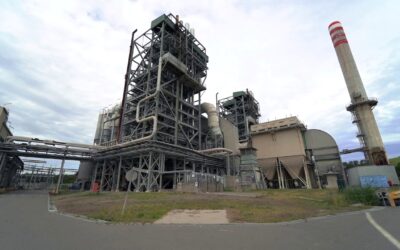A recent decision by the NSW Land and Environment Court has reaffirmed that a consent authority, in the granting of a development application, cannot require the dedication of land free of cost without a Voluntary Planning Agreement or the land being included in a contributions plan, This requirement remains irrespective of whether the developer volunteers to dedicate the land.
Legislation
Section 7.11 of the Environmental Planning and Assessment Act 1979 (NSW) (“the Act“) provides that a consent authority may require the provision of land free of cost in granting development consent, if the consent authorityis satisfied that the proposed development will or likely will require the provision or increase the demand for public amenities and services in the area.
Section 7.4 of the Act also provides that a consent authority can enter into a planning agreement for the dedication of land free of cost for a public purpose if a development application seeks to make a change to an environmental planning instrument.
Factual Background
Clause 6.14 of the Sydney Local Environment Plan 2012 (“LEP“) provides that a consent authority may approve a development with floor space that is additional to what is permitted, if the development includes community infrastructure.
In this case, L & G Management Pty Ltd (“the Developer“) sought over 300 square metres of floor space above what was permitted, and offered to Council of the City of Sydney (“Council“), pursuant to cl 6.14, a 2.4 metre strip of land at the front of the site to widen the footpath.
In doing so, the Developer asked Council to approve the dedication of this land without it either being identified in a contributions plan pursuant to s 7.11 of the Act, or the subject of a Voluntary Planning Agreement pursuant to s 7.4 of the Act, on the basis that its dedication of land free of cost was for the purpose of community infrastructure.
First Instance Proceedings
Following a deemed refusal by Council, the Developer lodged an appeal, which was dismissed by Commissioner Horton on the basis that Council had no power to accept the 2.4 metre strip of land under cl 6.14. As such, the Commissioner also did not have the power to approve the development application.
Appeal
The Developer appealed this decision, submitting that the Court could grant consent to the development application by choosing to not include a condition relating to the 2.4 metre strip of land.
This argument was rejected by Justice Duggan, who held that a development application cannot be approved by the Court if the development application was legally incapable of being approved. In this case, the Court affirmed that a consent authority can only require land to be dedicated free of cost in two ways:
- either by entering into a Voluntary Planning Agreement pursuant to s 7.4 of the Act; or
- pursuant to a s 7.11 contributions plan.
As the Developer’s development application only contained a condition pursuant to cl 6.14 of the LEP, neither the Court nor Council had the power to approve the development application on that basis.
The Developer also submitted that the Commissioner erred by failing to impose a condition that required the Developer and the Council to enter into a Voluntary Planning Agreement to give effect to the dedication. The Court rejected this on the basis that the decision to impose a condition is a discretionary power and therefore there was no error on the part of the Commissioner in deciding not to exercise that power.
Conclusion
This decision only reaffirms the long-standing view that the power to dedicate land free of cost can be found only in ss 7.4 and 7.11 of the EPA Act.
The full decision can be read here: L & G Management Pty Ltd v Council of the City of Sydney [2021] NSWLEC 149


